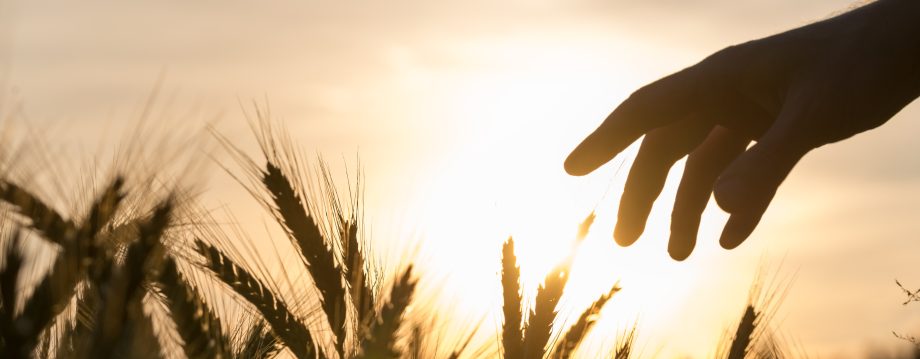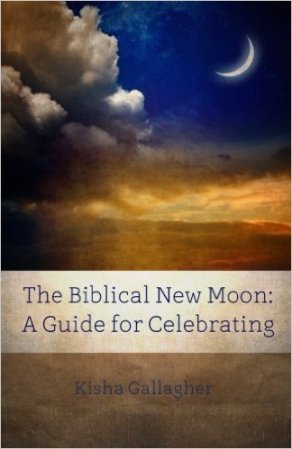How do we display the image of Elohim (G-d) in the earth?
Recently, I participated in an online correspondence class with a rabbi. In it, he made mention of the davar (word) and its relationship to the midbar (wilderness/desert). I know many of you are already familiar with this connection, but for the sake of those who are not, I will briefly explore this notion. In Hebrew, the root of midbar (desert) is davar (word). In other words, the wilderness comes directly from the Word. Being in the desert is akin to receiving the Word. Or to be more precise, the wilderness is where YHWH’s Word is tested in us. In the Torah, the Book of Numbers chronicles the Children of Israel’s wanderings in the desert. Thus, quite fittingly, this book is called BaMidbar or “in the wilderness” in Hebrew.
When YHWH miraculously removed ancient Israel from Egypt or when He rescued us from the figurative house of slavery (sin and death), where did He take them or us? Was it straight to the Promised Land? Or was it into the desert or wilderness? The fact that we all must face a literal or figurative desert upon being saved sounds counterintuitive at first. What do we need to learn in wilderness? I think Bill Cloud said it best (I’m paraphrasing Bill here): “God can remove us from Egypt, but we find that Egypt is still in us.” In other words, salvation, deliverance, and sanctification are ongoing processes. The desert becomes a type of threshing floor for our souls. All that offends is refined, purified, and threshed in the scorching sands of the desert. The Word that began a good work in us continues its commission to test and humble us. The difficulty and the pain of the wilderness “does good” for us in the end. For Abba, this is a labor of love.
“He led you through the great and terrible wilderness, with its fiery serpents and scorpions and thirsty ground where there was no water; He brought water for you out of the rock of flint. “In the wilderness He fed you manna which your fathers did not know, that He might humble you and that He might test you, to do good for you in the end. (Dt. 8:15-16)
But the desert has one more vital message to teach us. It is in our wilderness where G-d speaks. In the ups and downs of the desert, we learn to discern the difference between the Shepherd’s voice and the enemy’s crafty imitation. When we are stripped of all the comforts of Egypt, we finally reach the end of self. It is there, in the midst of what appears to us as chaos and disorder, that the G-d of order speaks kindly to us and lifts our weary heads. With no more worldly distractions, the Word reveals what is in our hearts. Each revelation offers us an opportunity to repent and return to the Master’s loving embrace.
Ones That Speak
While all the above is fascinating, even if a little scary, that’s not what struck me in the Rabbi’s lesson. He mentioned that one way we are like G-d is in the fact that we have the faculty of speech. We are the only creatures in His vast creation that, like Him, have words. We are medeber (ones that speak). Think about this for moment. In the same way that davar and midbar are connected, so is medeber. This means that we are not ONLY “ones that speak”, but “ones like a desert”.
Have you ever thought of yourself as a desert? Maybe our souls have felt dry or parched during a great trial, in the midst of mourning, or while suffering for righteousness sake or on account of our own sins. But have you ever considered that our wilderness journey should be as close and familiar to us as speech?
We were not only meant to speak, but we were meant to drink like the parched earth of a desert. Consider the many passages that urge us to partake of the Living Waters.[1] Or think about how the Word of G-d is figuratively referred to as rain or water.[2] We should be like the thirsty ground, eagerly waiting for the gentle rain of Abba’s Word. Considering that Adam was formed from the dust of the ground, this makes perfect sense. Mankind is essentially dirt or dust. And the ground NEEDS the heavenly rains like we NEED the words of our heavenly Elohim.
Dirt and Seeds
 We are, at our core, the substance (dirt) in which seeds can be planted in order for New Life to grow. The Word is equivalent to a Seed in Scripture.[3] Coincidence? I don’t think so. If words are seeds, we should be careful what we allow to take root in our soil or dirt. I believe these words or seeds can come from three places: G-d, the enemy, and ourselves.
We are, at our core, the substance (dirt) in which seeds can be planted in order for New Life to grow. The Word is equivalent to a Seed in Scripture.[3] Coincidence? I don’t think so. If words are seeds, we should be careful what we allow to take root in our soil or dirt. I believe these words or seeds can come from three places: G-d, the enemy, and ourselves.
Thus, the enemy’s word is a seed. The words we speak are seeds. The words others speak are seeds. But the only Seed that is always truth and always produces life is the Word of YHWH. The question is how do we know, and I mean without a doubt know that we know, whether the seed we are receiving is G-d’s Seed?
This is where the dry, dirty side of our essence comes in to play. In order to hear or receive the Word of Adonai, we must become like a desert. All distractions and things that vie for our attention must be removed in order for us to really hear or shema YHWH. In the wilderness, our nephesh (flesh) is denied worldly pleasures and conveniences. One reason that fasting is so effective is because it strips the nephesh of gratification. Any time our nephesh (with all its thoughts, desires, and appetites) is ruled over by our younger (new) spirit-man, our connection to YHWH is strengthened. And our flesh serves us rather than us serving it.
Whose Voice?
 Many times, we listen to the voice of our own desires rather than the Words of YHWH. Like the Tree of Knowledge, it speaks both good and evil. We know this voice so well that we often mistake it for the Holy Spirit (especially when its speaking “good”). Let’s face it, when it seems as if we will get to avoid suffering in a dry desert, our voice (or even the voice of the enemy) sounds like good counsel to our itching ears. This is why various people can all claim to be hearing from the One Holy Spirit, yet will have conflicting ideas, agendas, and doctrine. We are ones that speak, but rarely are we willing to become a desert. We must learn to submit to the wilderness and allow the Word to test us.
Many times, we listen to the voice of our own desires rather than the Words of YHWH. Like the Tree of Knowledge, it speaks both good and evil. We know this voice so well that we often mistake it for the Holy Spirit (especially when its speaking “good”). Let’s face it, when it seems as if we will get to avoid suffering in a dry desert, our voice (or even the voice of the enemy) sounds like good counsel to our itching ears. This is why various people can all claim to be hearing from the One Holy Spirit, yet will have conflicting ideas, agendas, and doctrine. We are ones that speak, but rarely are we willing to become a desert. We must learn to submit to the wilderness and allow the Word to test us.
Emptying ourselves of our own desires (even those we deem good and profitable or even godly) is the key to becoming the image of Elohim in the earth. You want to love YHWH with all your heart and love your neighbor like yourself? It will cost you flesh and bone. Are we willing to suffer for YHWH and our neighbor?[4] Or would we rather cause others to suffer so that we can have things our way? Do we open our mouths and speak life (healing/shalom) to others or do we use our speech to persuade others to do things the way we like it or see it? Which voice is the Holy Spirit and which is the voice of our own nephesh (soul)?
The acquisition of treasures (desires of our hearts/flesh) by a lying tongue is a fleeting vapor, the pursuit of death. (Pr. 21:6 added parenthesis mine)
If anyone thinks himself to be religious, and yet does not bridle his tongue but deceives his own heart, this man’s religion is worthless. (Jam. 1:26)
Watch Your Mouth
He who guards his mouth and his tongue, Guards his soul from troubles. (Pr. 21:23)
 Our mouths cause us more trouble than any other member of our bodies.[5] Is this because we only desire to be ones that speak and not ones like a desert? After all, you can’t speak AND drink at the same time! Interestingly, if we fail to choose to become a humble desert before YHWH, He will take us there kicking and screaming. Our only choice in the matter is the method of how we arrive and how we act once we get there. YHWH’s Word is ALWAYS tested in the wilderness/desert.[6] Consider the many judgments that result with the people and the land becoming desolate. In these cases, Abba’s judgment has in effect “shut our mouths”.[7]
Our mouths cause us more trouble than any other member of our bodies.[5] Is this because we only desire to be ones that speak and not ones like a desert? After all, you can’t speak AND drink at the same time! Interestingly, if we fail to choose to become a humble desert before YHWH, He will take us there kicking and screaming. Our only choice in the matter is the method of how we arrive and how we act once we get there. YHWH’s Word is ALWAYS tested in the wilderness/desert.[6] Consider the many judgments that result with the people and the land becoming desolate. In these cases, Abba’s judgment has in effect “shut our mouths”.[7]
Is Adonai just an angry tyrant or does He know something that we desperately don’t want to accept? The Bible says that G-d is Love and that He chastises those whom He loves.[8] He takes us to the desert because He knows that the testing of the wilderness will reveal our hearts. We need to face the serpent on the pole, so that we may be healed and saved. The serpent is the voice of our own selfish desires. It is the crafty forked tongue that whispers both good and evil. When we heed its voice rather than Adonai’s, we are stung with its venom and take the fast track toward death.
This is why we must die daily like the lamb offerings in the Tabernacle and the Temple. Our beast must be brought to the altar. Like all creatures, the beast doesn’t submit easily. It is excellent at convincing us (with its mouth) that all is well. The smooth words of the serpent appeals to our feelings of entitlement, self-righteousness, and piety. The beast does not like to identify with suffering or humility. But like Cain, we are told to MASTER this impulse.
 We do this by becoming what we were created to be. We are a desert; a vast wilderness laid bare for all of heaven to see and judge. In this position, we are no longer mouths that speak to justify or coerce; rather, we become a sponge that soaks up the words of life. Though the Living Word kills the flesh, it quickens the spirit.
We do this by becoming what we were created to be. We are a desert; a vast wilderness laid bare for all of heaven to see and judge. In this position, we are no longer mouths that speak to justify or coerce; rather, we become a sponge that soaks up the words of life. Though the Living Word kills the flesh, it quickens the spirit.
This is the key to humility, hearing from Abba, and loving our neighbor sacrificially. It is also what molds and shapes our clay vessels into the image of our great and loving Elohim. If we really got this we would no longer scorn our fiery trials or fear the seemingly empty places of life. Instead, we would prostrate ourselves under the heavens and allow the Word to truly divide between our soul (nephesh) and spirit.
For the word of God is living and active and sharper than any two-edged sword, and piercing as far as the division of soul and spirit, of both joints and marrow, and able to judge the thoughts and intentions of the heart. And there is no creature hidden from His sight, but all things are open and laid bare to the eyes of Him with whom we have to do. (Heb. 4:12-13)
[1] Jer. 2:13; 17:13, John 4:10-11, Rev. 7:38
[2] This post speaks about the early and latter rains.
“For as the rain and the snow come down from heaven, And do not return there without watering the earth And making it bear and sprout, And furnishing seed to the sower and bread to the eater; So will My word be which goes forth from My mouth; It will not return to Me empty, Without accomplishing what I desire, And without succeeding in the matter for which I sent it. (Is. 55:10-11)
“So let us know, let us press on to know the LORD. His going forth is as certain as the dawn; And He will come to us like the rain, Like the spring rain watering the earth.” (Hos. 6:3)
So that He might sanctify her, having cleansed her by the washing of water with the word. (Eph. 5:26)
[3] Luke 8:11
[4] Suffering for Righteousness’ Sake
To sum up, all of you be harmonious, sympathetic, brotherly, kindhearted, and humble in spirit; not returning evil for evil or insult for insult, but giving a blessing instead; for you were called for the very purpose that you might inherit a blessing. For, “THE ONE WHO DESIRES LIFE, TO LOVE AND SEE GOOD DAYS, MUST KEEP HIS TONGUE FROM EVIL AND HIS LIPS FROM SPEAKING DECEIT. “HE MUST TURN AWAY FROM EVIL AND DO GOOD; HE MUST SEEK PEACE AND PURSUE IT. “FOR THE EYES OF THE LORD ARE TOWARD THE RIGHTEOUS, AND HIS EARS ATTEND TO THEIR PRAYER, BUT THE FACE OF THE LORD IS AGAINST THOSE WHO DO EVIL.” Who is there to harm you if you prove zealous for what is good? But even if you should suffer for the sake of righteousness, you are blessed. AND DO NOT FEAR THEIR INTIMIDATION, AND DO NOT BE TROUBLED, but sanctify Christ as Lord in your hearts, always being ready to make a defense to everyone who asks you to give an account for the hope that is in you, yet with gentleness and reverence; and keep a good conscience so that in the thing in which you are slandered, those who revile your good behavior in Christ will be put to shame. For it is better, if God should will it so, that you suffer for doing what is right rather than for doing what is wrong. (1 Peter 3:8-17)
[5] James 3
[6] Think about Moses and Yeshua. Were they each not tested in the wilderness? What about Paul? Can you recall a period where he was tested in the desert? Consider the Children of Israel, Job, David, Jeremiah, John the Baptist, and others. Can you connect these righteous men with both suffering and the desert/wilderness? Does the Bible give us examples of those who willingly flee to the desert and those who are taken there against their will? What is the difference between these two experiences? What is similar about these experiences? It seems as though we ALL must experience the wilderness. The question is: Will we go willingly or by force?
[7] Now we know that whatever the Law says, it speaks to those who are under the Law, so that every mouth may be closed and all the world may become accountable to God. (Rom. 3:19)
[8] FOR THOSE WHOM THE LORD LOVES HE DISCIPLINES, AND HE SCOURGES EVERY SON WHOM HE RECEIVES.” (Heb. 12:6)







